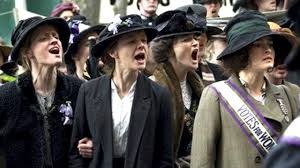Posted: November 9, 2015 | Author: Donald | Filed under: Uncategorized | Tags: Abi Morgan, Ben Wishaw, Brendan Gleeson, Carey Mulligan, Charlie Hunnam, Crimson Peak, Guillermo del Toro, Helena Bonham-Carter, Hsaio-Hsien Hou, Jessica Chastain, Matthew Robbins, Meryl Streep, Mia Wasikowska, Sarah Gavron, Suffragette, The Assassin, Thomas Hiddleston | 5,134 Comments »
First, a word from our sponsors: I am now offering a new service: so much emphasis has been given lately to the importance of the opening of your screenplay, I now offer coverage for the first twenty pages at the cost of $20.00. For those who don’t want to have full coverage on their screenplay at this time, but want to know how well their script is working with the opening pages, this is perfect for you. I’ll help you not lose the reader on page one.
Ever wonder what a reader for a contest or agency thinks when he reads your screenplay? Check out my new e-book published on Amazon: Rantings and Ravings of a Screenplay Reader, including my series of essays, What I Learned Reading for Contests This Year, and my film reviews of 2013. Only $2.99. http://ow.ly/xN31r
and check out my Script Consultation Services: http://ow.ly/HPxKE
Warning: SPOILERS
 In the new historical semi-epic Suffragette, women fight for the right to vote. Not a particularly controversial topic these days, except perhaps in some remote regions of the radical right.
In the new historical semi-epic Suffragette, women fight for the right to vote. Not a particularly controversial topic these days, except perhaps in some remote regions of the radical right.
Written by Abi Morgan (The Iron Lady, Shame and the TV series The Hour) and directed by Sarah Gavron (Brick Lane), there’s nothing that wrong with the movie and it does its job admirably enough, and all the while backed by impeccable period settings and costumes ranging from working to the more leisurely classes.
At the same time, there’s nothing that exciting about it either. It’s a movie that does what it does, but that’s about all that it does.
The strongest parts of the film are in the first third which dramatizes in often devastating detail the life of Maud Watts who works in a laundry. Here the women are paid less than the men (and do more work and have longer hours); endure horrifying working conditions; and are the victims of their bosses sexual predilections.
Maud is your everywoman here, great at her job, a loving mother and wife, reluctant to rock the boat, but equipped with a righteous conscious. In other words, everything the central character of a movie should be so as not to alienate the audience.
That’s perhaps a bit unfair because Carey Mulligan, who plays Maud, gives a very empathetic performance and makes her more than a construct.
But the film begins to lose its way in the second third as the suffragette movement starts taking center stage. It’s hard to say exactly why the movie starts flailing a bit here, except that the screenplay, perhaps, can’t seem to make the idea of women’s right to vote as compelling and interesting as their work and sexual exploitation. Read the rest of this entry »
 In the new historical semi-epic Suffragette, women fight for the right to vote. Not a particularly controversial topic these days, except perhaps in some remote regions of the radical right.
In the new historical semi-epic Suffragette, women fight for the right to vote. Not a particularly controversial topic these days, except perhaps in some remote regions of the radical right.